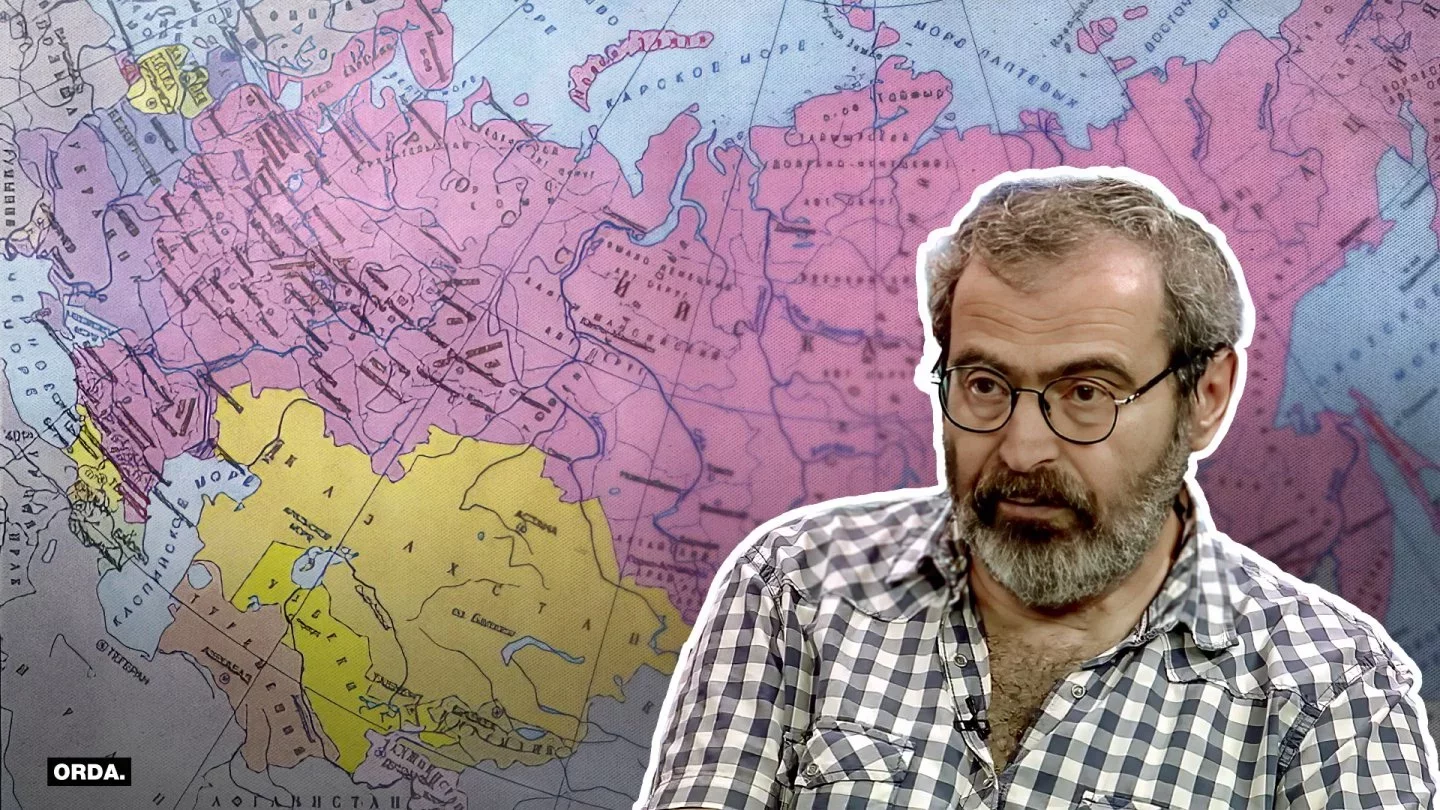The "Imperial Narrative": Political Scientist Dubnov Assessed Kazakhstan's Place in Russian Friendship Rating
 Photo: Orda
Photo: Orda
Arkady Dubnov, a well-known expert on Central Asia, shared how he assessed the rating of "friendly countries" presented by Russian scientists with Orda. The rating seems to be an indicator of loyalty to Moscow's policy.
The Russian National Research Institute for the Development of Communications conducted the study. It could have been useful in an honest study of the developments occurring 33 years after the collapse of the USSR.
Unfortunately, it is purely opportunistic and politically biased. The purpose is to show the creation of a new geopolitical space in place of the USSR. Although it is comparatively downsized, it is still possible.
The Russian Elite’s Worldview
For the first time, this idea was publicly announced a couple of days after the end of the 44-day war between Armenia and Azerbaijan in September-November 2020, when Vladimir Putin received the President of Abkhazia Aslan Bzhania in Moscow. Upon returning home, he shared what he heard with the leading asset of the republic, and it spilled into the media.
Putin said at the time that the time was not far off when it would be possible to create a commonwealth of territories and state entities focused on Russia in their development.
The first candidates for the commonwealth would be the states unrecognized by the majority of the world - Abkhazia, South Ossetia, and Transnistria (PMR). Before the start of the Special Military Operation, it seemed that the self-proclaimed DPR and LPR could also have been candidates. Moscow, however, has officially declared them as subjects of the Russian Federation.
The “rating” also unveils the worldview of the Russian elite. They still consider the Baltic States, long-standing NATO and EU members, to be zones of influence. This frankly imperial narrative along with the onset of the Special Military Operation has portrayed a historical anachronism. Two years after the start of Russia's military operations in Ukraine, contributing to the growing fear of potential Russian aggression in the Baltic States, albeit sometimes overly exaggerated, it is strange to express concern about Ukraine and the Baltic countries forming an "anti-Russian cluster”.
Whose Idea?
Surprisingly, acknowledging the obvious formation of a worldview among new generations and elites with no experience of Soviet life does not bring about sober assessments regarding the inevitable trend towards the sovereignization of their states and the desire to preserve and amplify their national characteristics along with historical traditions.
On the contrary, they contribute to the clear irritation over their unwillingness to take into account the achievements made during the Soviet period in these republics. Such ideological myopia only strains the harmonious and trusting relations with Russia.
The study expresses regret that the "ideology of unfriendliness" continues to rely on the concept of "neocolonialism" with an appeal to the history of the Russian Empire. Even if this judgment is partly justified, the authors from the Russian National Research Institute for the Development of Communications somehow forget that Russia itself was the first to separate the world into friendly and unfriendly states.
The reason for this division was how the countries reacted to Russia's military operation in Ukraine. This Russian-centric view of the world looks quite backward in essence. And this cannot but confuse several observers.
How Is Kazakhstan Currently Perceived?
I am also perplexed by this element, particularly by the statements of Russian political strategist Yevgeny Minchenko, whom I respect.
He expressed "concern" about Kazakhstan, Armenia and Moldova. It seems to him that they have turned away from the only correct course towards integration with Russia, as it was before.
Remembering how, figuratively speaking, "it was like this during grandfather's time," he amusingly confirms the words spoken by his colleague Valentina Komleva, quoted by me above, about the formation of the worldview of new national elites stirring to life. One must work with them respectfully, while understanding their objectives, and not hone in on their differences.
Speaking of Kazakhstan, what view of Russia can currently emerge among the middle and younger generation of Kazakhstanis given Russian "talking heads" regular assertions that their country "owes" Russia a part of its historical territories?
In Kazakhstan, they are well aware that this thesis accurately reproduces what the head of the Russian state has said more than once, even if only in the context of Ukraine.
Original Author: Maksim Skopin
DISCLAIMER: This is a translated piece. The text has been modified, the content is the same. The original piece should be used for accuracy.
Latest news
- Kazakhstan Lifts Gallium Export Duty
- Chinese Firm Proposes to Fund New Port and Logistics Hub in Mangystau Region
- ForteBank Stock Soars on Home Credit Deal, Then Plunges 30% in a Day
- Coins Believed to Be Tied to Kairat Satybaldyulyuly to Be Auctioned
- Ukraine’s Military Intelligence Chief Says Ceasefire Should Come Before Year’s End
- Kyrgyz Citizen Fined in Kazakhstan for Carrying Banned Book Across Border
- Trial of Former Financial Police Officers in Khorgos Case No. 1 Closed to Public Over State Secrets
- Kazakhstan to Ban Outdoor Currency Rate Displays at Exchange Offices Starting September
- Armenian Court Orders One-Month Detention for Tashir Pizza Executive Amid Ongoing Investigation
- Kazakhstan May Require Banks to Offer Deferrals to Socially Vulnerable Borrowers
- Almaty Utility Pursues Debt Collection for Unpaid Heating and Hot Water Bills
- Kazakhstan and Afghanistan Sign Railway Memorandum
- Kazakhstan's National Bank Keeps Interest Rate at 16.5%, No Cuts Expected Until 2026
- Vyacheslav Kim Finalizes Purchase of Alatau City Bank
- Wild Arman Associate Detained in UAE Over Alleged Role in Qantar Riots
- Ulytau Region Akim Sues Woman for 495,000 Tenge Over TikTok Video
- Ukrainian Entrepreneurs Move to Buy BTA Bank from Kazakh Businessman Kenes Rakishev
- Kazakhstan’s Foreign Debt Hits 170.5 Billion USD in Q1 2025
- Regulator Flags Pricing Issues in Yandex Go Audit, Company Ordered to Adjust Policies
- Azattyq Prepares Lawsuit Against Kazakh Foreign Ministry Over Denied Press Accreditations

